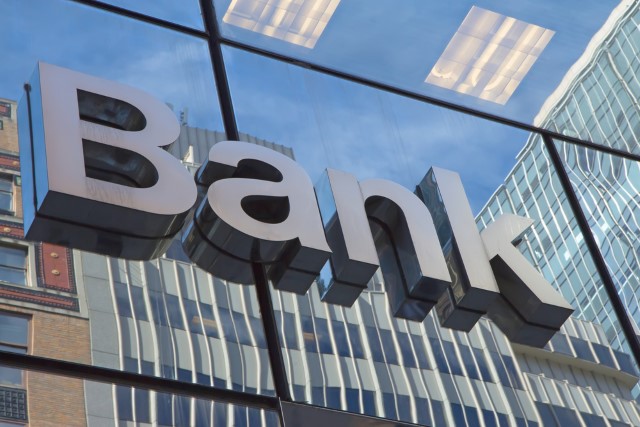
PayPal cancels customers it doesn't like
In the past 48 hours or so PayPal’s UK arm has canceled the accounts of a number of campaigning organizations including the Free Speech Union, legal campaigners Law or Fiction, parents group UsForThem, and even the personal account of the FSU's founder journalist Toby Young.
The only reason the company has given for these actions is to cite its Acceptable Use Policy. And, as Young wrote in his column in The Spectator, PayPal also decided it would hang onto his money for up to 180 days while deciding whether to extract 'damages' before refunding it.

Revolut customer data exposed in cyberattack
Fintech firm Revolut has been hit by a cyberattack that resulted in personal data of tens of thousands of users being exposed.
Described as a "highly targeted" attack -- although it is not clear who was targeted or why -- the security incident took place on the night of September 11. The attack gave an unauthorized third-party access to a range of data including postal and email addresses, account information, and phone numbers.

6 FinTech trends that will dominate the industry in 2022
2022 may have started as the year of blockchain technologies and NFTs, but since March, the crypto market has seen a major dip.
However, despite the cooling of crypto, some trends have continued to flourish throughout the middle of the year. This article will discuss the six FinTech trends we believe will boom in 2022.

Banks choose to build their own tech solutions
While banks are investing in technology solutions to meet increasing demands, a new study shows that 61 percent prefer to build their own technology stack, rather than buy technology solutions from a third party.
The study from IT services company NTT DATA surveyed 900 senior banking respondents across 12 countries and examines the state of corporate banking following the COVID-19 pandemic.

How Banking-as-a-Service is shaking up the fintech ecosystem
Today, consumers are faced with more choice than ever when it comes to their financial affairs. From contemporary offerings like Buy Now, Pay Later (BNPL) and embedded finance platforms, to more traditional products like credit and debit cards, institutions and retailers alike are being called upon to deliver more seamless, quick and flexible solutions to their customers.
Crucially, businesses launching new financial products often require the complex underlying infrastructure of a bank to bring their offerings to market -- this is, of course, with the obvious exception of certain BNPL products like Klarna, which can operate without full regulation. Likewise, incumbent banks themselves, who already have the full regulatory permissions required to operate, may need to adopt core banking platforms to modernize their legacy systems in order to develop truly competitive offerings to meet the needs of their customers. This is where Banking-as-a-Service (BaaS) and Platform-as-a-Service come in to disrupt the fintech landscape.

Fintech sector will struggle with global talent shortage
The first quarter of this year has seen a massive 182 percent growth in tech roles within fintech, three times the pace of general market.
Figures from recruitment firm Robert Walters show that one in three new hires within fintech companies around the globe are software engineers and developers. Also the top eight fintech 'mega-hubs' account for over 90 percent of all new fintech jobs advertised around the globe.

Hackers spoof fintech apps as tax season approaches
The annual tax season is inevitably the cue for a spate of attacks impersonating official sites or popular accounting software.
In a new twist for this year researchers at email security firm Avanan have uncovered attacks spoofing fintech apps such as Stash and Public to steal credentials and give users a false sense of security that they've compiled the right tax documents.

High risk vulnerabilities in fintech soar over the past year
Financial services companies on the Bugcrowd platform experienced a 185 percent increase in the last 12 months for Priority One (P1) submissions, which relate to the most critical vulnerabilities.
According to activity recorded on the Bugcrowd Security Knowledge Platform, high-level trends include an increase in ransomware and the reimagining of supply chains, leading to more complex attack surfaces during the pandemic.

Open banking, real-time payments and more AI -- fintech predictions for 2022
It's that time of year again, when tech experts like to swirl their tea leaves, polish up their crystal balls and try to predict what lies ahead for the coming year.
To get our annual series of predictions round-ups underway we're taking a look at the world of banking and fintech.

The changing face of fraud and how artificial intelligence is helping to counter it [Q&A]
Financial crime is on the increase and attackers must be stopped in their tracks. Financial service organizations new and old need to ensure they have the right technology in place to predict, detect and deter fraud, whilst ensuring minimal disruption to the customer journey.
We spoke to Martin Rehak, CEO of Resistant AI to find out how sophisticated artificial intelligence can detect known criminal practices and more importantly, predict the unknown emerging patterns of financial crime.

How FinTech and digital currency unfolds global technology disruption
The term FinTech has been coined quite recently. However, this does not change the fact that Finance and technology have always been intertwined. Way back in 1866 the first transatlantic cable was laid, which then became the backbone for the globalization of finance. Next in 1918, the first electronic transfer of money was conducted using Morse code technology. In the 1950s, credit cards, another digital payment medium, was launched by American Express and Diners Club. This event can officially be called FinTech 1.0.
The actual beginning of modern FinTech effectively dates back to 1967 when the first ATM machine was used by Barclays in 1967 and the period was called FinTech 2.0. Owing to the development of technologies in communication and transaction, the world saw its first digital stock market, which marked the beginning of online financial markets. The advances didn’t stop there.

Artificial Intelligence: A smart investment for financial services firms
Artificial intelligence (AI) is rapidly gaining momentum as a vital business resource as organizations discover new use cases in their efforts to improve processes, increase efficiency and automate costly, manual tasks. Industries such as financial services are ideal for AI-driven applications and a related technology, machine learning (ML), because they can bolster customer service and leverage data to increase competitiveness.
AI includes software that’s designed to work in ways similar to the human brain, while machine learning encompasses programs that alter themselves based on data that’s fed into the programs in order to train them.

Transform business operations with cloud-based expense reporting
Expense reporting can be a headache for both employees and businesses.
For employees, hanging onto receipts and filling out detailed paperwork is tedious and gets in the way of more productive tasks. It can be easy to lose track of important information needed to file reports correctly, especially for frequent travelers. Traditional reporting procedures put the onus on the employee to keep tabs on one more thing -- on top of doing their jobs.

Why the financial sector is especially vulnerable to cyberattacks [Q&A]
There's a famous quote attributed to career criminal William Francis Sutton Jr., when asked why he robbed banks he is said to have replied, "Because that's where the money is."
For today's cybercriminals the motivation to make money is much the same, so the banking and financial services sector is a prime target. We spoke to Paul Prudhomme, cyber threat intelligence advisor at IntSights to find out more about the threats the industry faces and how they can be addressed.

Cryptocurrency becomes mainstream and new digital standards arrive -- fintech predictions for 2021
In recent years we've seen some significant shifts in the financial sector, with newer businesses using technology to challenge more established players.
Much of this has centered around the use of blockchain, although cryptocurrency still hasn't entered the mainstream. What do experts think we'll see in the fintech space next year?
